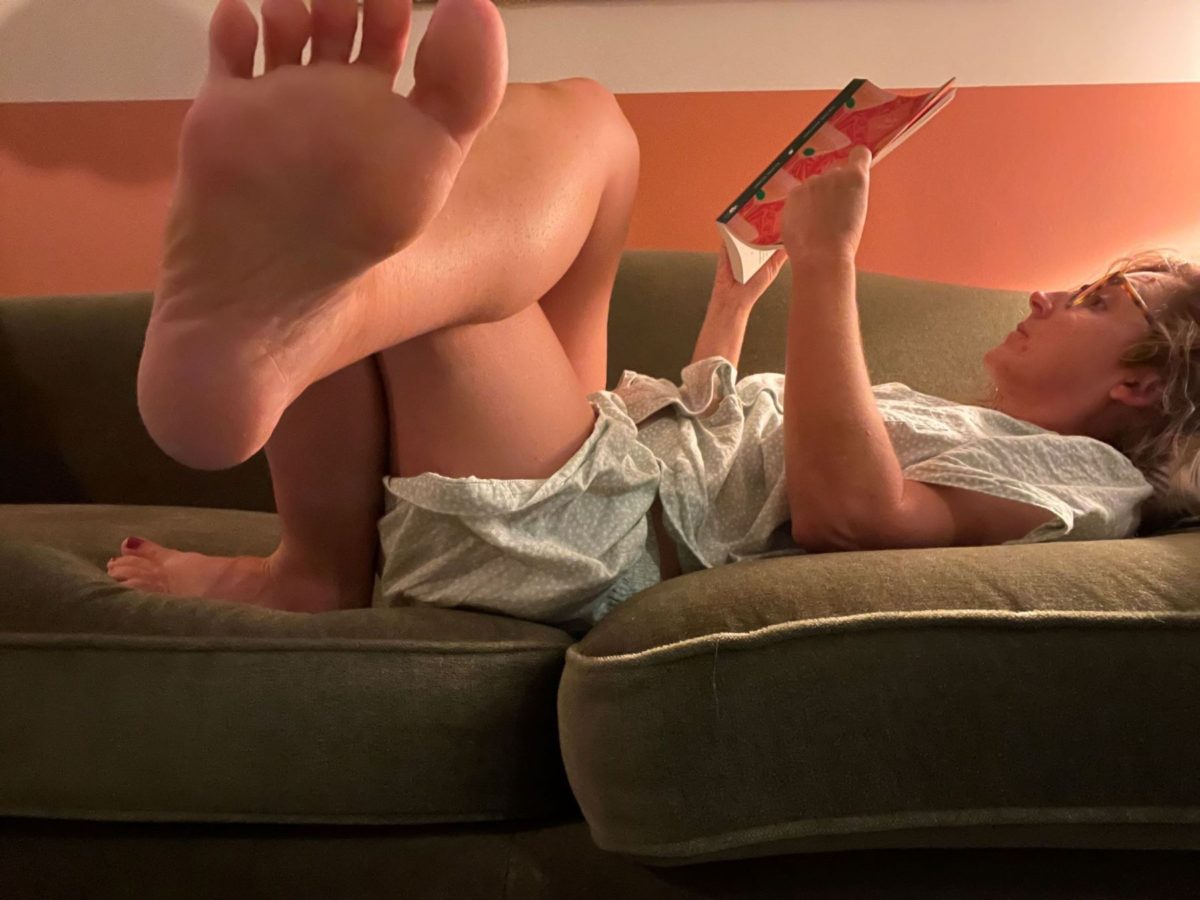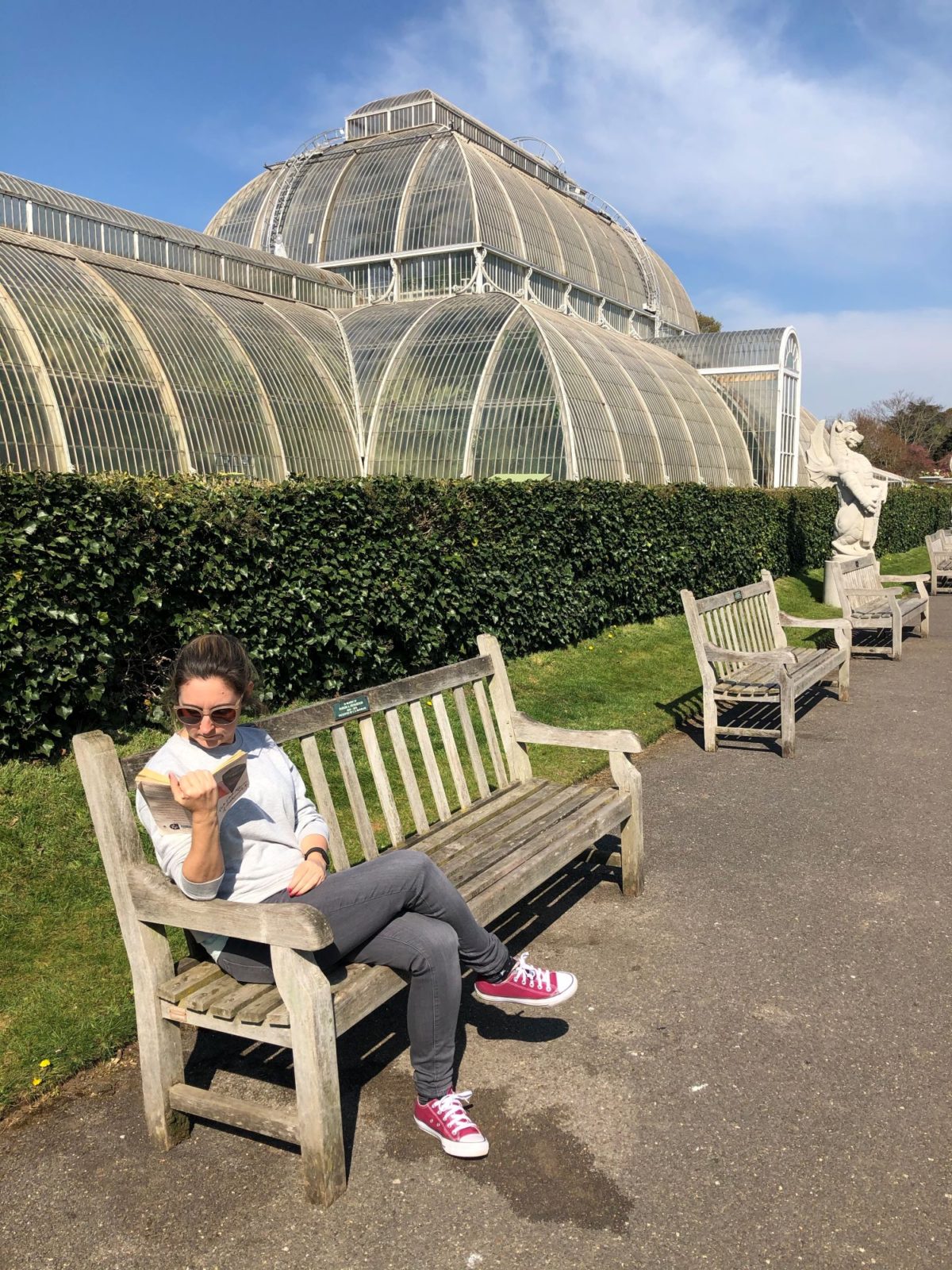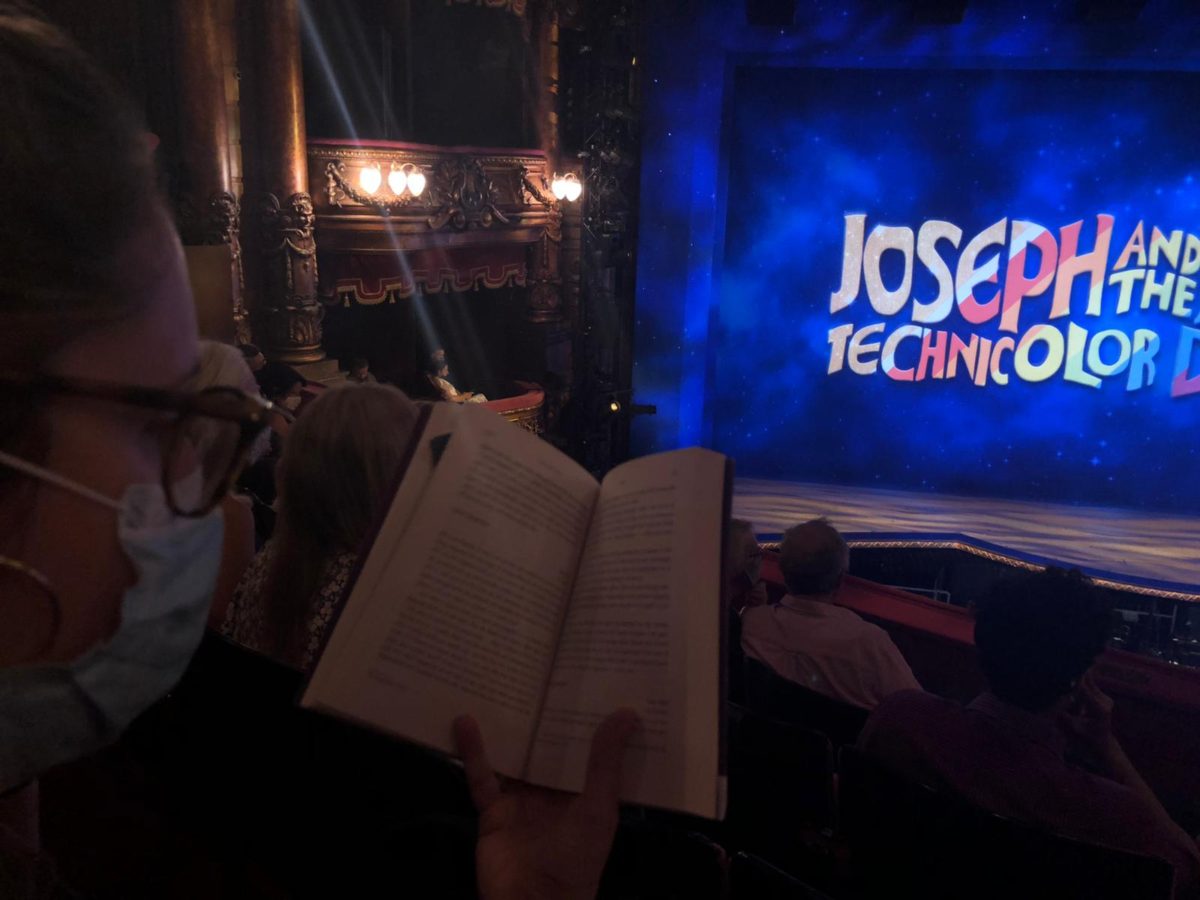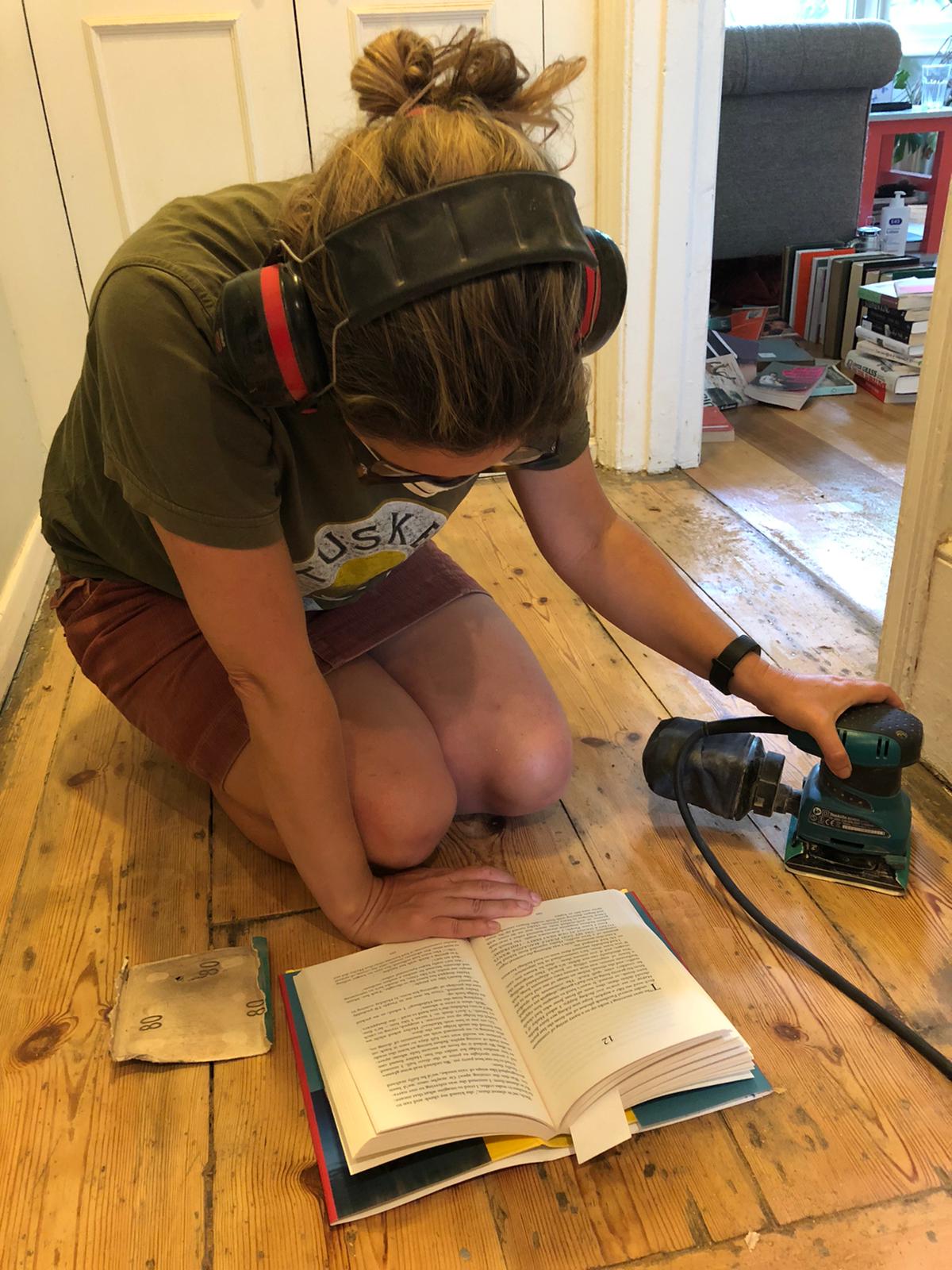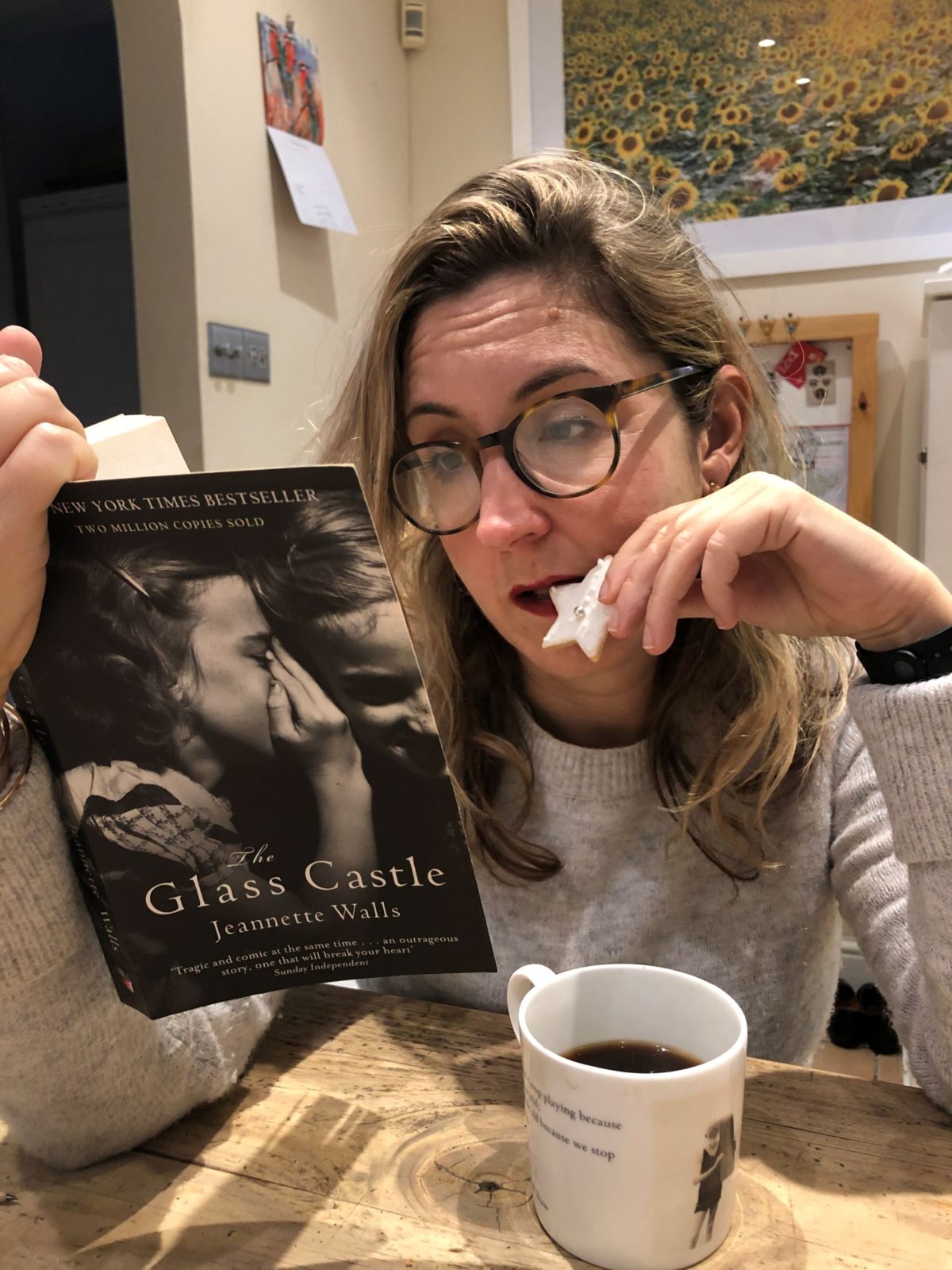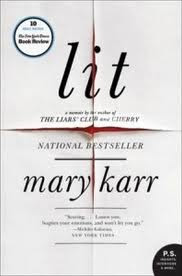Here is a book by Karen and Georgia. I’ve never met either of them, but I feel like I know them. This is because I listen to their podcast MY FAVORITE MURDER every week. It’s a true crime comedy podcast (don’t ask). This is their spin-off book about their private lives. Karen and Georgia moaned a lot in the podcast about how hard it was to write a book, and that does kind of show a bit. They’ve added lists of stuff, a sure sign you are struggling to fill those pages. I was only surprised there were not recipes. (In fact Georgia did try to add her dad’s bbq chicken , but then he revealed it was just whatever generic bbq sauce happened to be on sale)
Reading this book did make me realize how much MY FAVORITE MURDER’s magic sits not in either host, but in the relationship between the two. There is some kind of special sparkle that makes those two add up to three or even four. I find it interesting when that happens, like it did for Simon & Garfunkel. Of course leaving aside their special chemistry, it’s also true that we live in a lonely age, and are hungry for friendship, even if it is the friendship of other people. I suspect that’s a big part of why the podcast got to be so big.
The authors mention how when they met they had both coincidentally been reading DARING GREATLY by Brene Brown. This is a book about the power of vulnerability. They both say reading that book made them more open to new people (and thus each other), and to new projects (and thus MY FAVORITE MURDER, the project that took them from struggling to millionaires). I also see how it translates into their show, which is often surprisingly open about all sorts of topics (mental health, pets, fat). I had thought this was just ‘how they were,’ and its interesting to find how much it is actually a choice.

